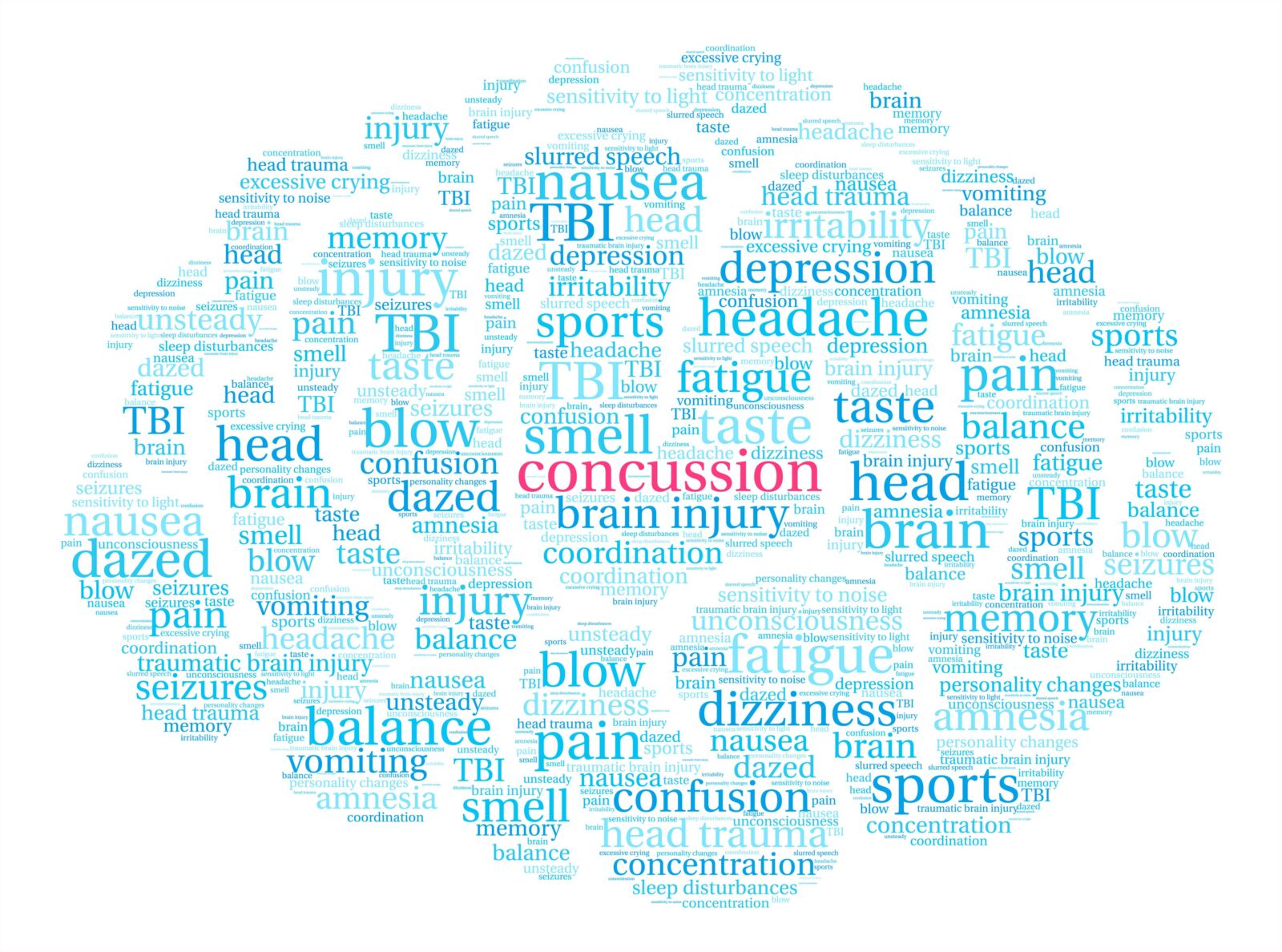
Neck Strength and Concussion. How to prevent concussions in the Denver area.
Want to learn how to prevent concussions through neck training? In this article on concussion prevention, we’ll cover everything you need to know about limiting head injuries by strengthening the neck.
Over the last decade, researchers and athletic programs have been scrutinizing over how to prevent concussions since recent findings have highlighted concussions’ long-term health consequences.
But, as more attention has gone into the consequences, even more attention has also gone into researching potential ways to prevent a concussion. As the research increases, so does the suggestion that neck strength and concussion prevention are interlinked.
We’ll examine that link in great detail below, while offering you tips on how to start neck training as a means of concussion prevention. We’ll also talk about concussion prevention equipment and how it can help you stay healthy over the course of an intense athletic season – keeping you in more games and reaching your full potential. First things first – let’s offer a brief overview of head injuries in general.
What Is A Concussion?
According to the CDC, a concussion can be qualified as a ‘mild brain injury.’ It’s often caused when the brain and neck are moved too quickly back and forth, causing the brain to bounce or contort in the skull.
While rarely life-threatening, that’s not to say that a concussion is completely harmless. It can still cause chemical changes in the brain and temporary headaches, dizziness, memory issues, and fatigue.
There is also the risk of getting another concussion before the first has passed. Especially if you are an athlete, it’s important to take time to let yourself heal. Receiving one concussion after another can lead to fatal brain swelling or even worse long term symptoms.
Athletes in high-impact sports such as football are especially vulnerable to the recurrence of concussions. Given this, more collegiate and professional athletic programs have begun investing in concussion prevention protocols and hiring doctors on staff that specialize in Concussion.
Neck Strength And Concussions: What’s The Connection?
According to Complete Concussion Management, improved neck strength can help the neck tense in preparation for impact, potentially reducing the effects of a concussion.
As concern continues to grow on the long-term effects of concussions, more and more studies have looked into how neck strength can affect the likelihood of getting a concussion. In a study by the Journal of Primary Prevention, they found that a weaker neck had a higher correlation to getting a concussion, ultimately concluding that “for every one pound increase in neck strength, odds of concussion decreased by 5%.”
That’s why you’re seeing more and more neck exercises for boxing, f1 neck training, etc. We’ll talk more about how you can prevent concussions and other injuries through neck exercises shortly. First, let’s take a look at what the NFL is doing to help avoid traumatic brain injury in their sport.
Can Concussions Be Prevented?
Before we address all the ways to prevent a concussion, it’s important that we offer a disclaimer on concussion prevention in the first place.
While the advice we’ll offer below on how to prevent a concussion can help you lower your likelihood of brain injury, there is no surefire way to eliminate your risk altogether. In certain sports – and really anytime you get out of bed in the morning – accidents and injuries are always a possibility.
That’s not to say you shouldn’t take the time and energy to lower that risk – because there is actually quite a lot you can do in terms of concussion prevention. Let’s take a look at what the NFL is doing for ways to prevent concussions in football.
What Is The NFL Doing To Prevent Concussions?
The NFL has shown its intention of making major changes in how to prevent concussions. As to what the NFL is doing to prevent concussions, they are focusing mainly on improving helmets and banning those that they’ve deemed not secure enough.
**News Flash: Helmets DO NOT PREVENT CONCUSSIONS they prevent skull fracture. In fact, the added weight of the helmet on a neck not strong enough can cause greater whiplash injury and actually a higher likelihood of concussion! Also, individuals wearing a helmet during a computerized test of risk taking were 30-40% more likely to take a risk compared to the counterparts not wearing a helmet.
However, as stated earlier, helmets cannot keep the brain from bouncing around the skull. The NFL is also encouraging more players to self-report and recover from existing concussions before rejoining the game. In 2019, that roughly one-third of all concussion evaluations resulted from some degree of self-reporting by the player. They have also spoken about improving techniques, such as having players make sure their necks and head are angled upward when tackling.
How To Prevent Concussions: All The Different Ways To Prevent Concussions So You Can Stay Healthy
When it comes to concussions and everyday life, the best way to prevent a concussion is caution and trying to keep from getting into accidents, to begin with.
Simple things like holding onto handrails, using non-slip carpets and rugs, especially in wet areas, and making sure areas are well-lit to avoid getting into accidents are a huge help.
Car accidents are one of the most significant factors in potentially getting a concussion. Wearing a seat belt can prevent flying through the air and moving too violently. However, whiplash is a common injury from motor vehicle accidents and can occur even in a slow-moving accident.
You may also be asking yourself, “do helmets prevent concussions?” No helmet can protect 100% against a concussion. It can, however, protect the skull and help prevent more severe brain injuries, such as cranial bleeding. However, they can’t protect against all brain injuries.
A proactive approach to reducing concussion risk includes better awareness of both the rules and your surroundings, proper fitting equipment and by increasing neck strength and training the neck to be prepared for impacts that can come from anywhere.
The ONLY 3 ways to prevent concussion are:
- Mouthguards
- Peripheral Vision Acuity
- Neck Strength
WAYS TO PREVENT CONCUSSIONS IN FOOTBALL SPECIFICALLY
When it comes to ways to prevent concussions in football, it is important to wear proper concussion-prevention equipment. Helmets, while again not 100% effective, can potentially save your life when dealing with severe brain injuries.
Another vital piece of equipment that can safeguard against concussions is the mouthguard. You may ask, “how do mouthguards help prevent concussions?” Studies suggest that having a custom made mouthguard to bite onto will relieve pressure from the jaw and sequentially lessen the impact on the brain. Even if it does not directly affect concussions, they can still help from getting any damage to your teeth.
WAYS TO PREVENT CONCUSSIONS IN SOCCER SPECIFICALLY
Soccer also has the potential for concussions. When it comes to concussion prevention in soccer or any other sport where you don’t have a helmet or mouth guard available, the most important thing to do is follow the rules of the game. Follow regulations set out by the coach and refrain from bending the rules.
Awareness of your surroundings is a critical part of how to prevent concussions in soccer. Keeping your head up so that you have a full range of vision of your surroundings can help you either prevent an impact from happening or preparing your body for an impending impact.
If there are any posts, covering them to prevent impact will also help. Checking the ground for any uneven spots will also help avoid any unnecessary falling.
Most important in any sport, especially those without concussion prevention equipment, is taking a break if you do get a concussion. Exacerbating an already existing concussion will lead to prolonged symptoms and possibly permanent damage.
CONCUSSION PREVENTION EQUIPMENT
More research is beginning to suggest a link between neck strength and concussions. As stated earlier, helmets and mouthguards can potentially lessen some of the impact and thus keep the brain from moving in the skull. However, they cannot entirely stop the neck from moving quickly and cannot fully prevent the brain from rotating in the skull. In cases where neck musculature is underdeveloped, the added weight of a helmet can cause more significant whiplash force.
When it comes to how to prevent concussions, the best thing to do is guard against any vulnerability factors. That includes working on neck strength and neck stiffening. And that’s where neck strengthening exercises and neck strengthening machines come in handy. Thus, neck strength and concussions are undeniably linked.
Strengthen Your Neck
As you now know, there is a correlation between a thick neck and concussion prevention -which means taking the time to address neck weakness is well worth it. Plus, there are other benefits of neck exercises for athletes -you’ll enjoy better performance as well.
When it comes to neck exercise machines, the focus mainly goes into protecting against linear impact. While useful, an athlete will be hit from more than one direction and thus needs rotational training linked with linear training. There are also many impacts that occur from landing on the ground and the neck snapping forcefully. In addition, an impact to the body can cause whiplash forces through the neck.
That is where equipment like the Iron Neck comes in. It allows for a wide range of motions, not restricting you to a single spot or position when exercising your neck. With adjustable resistance, you can exercise your neck from all angles at your own pace.
You can learn more about neck training in general by asking us during your next visit – where we cover topics such as how to build neck muscles at home, football neck exercises, neck training before and after, and how to train the side neck muscles.
Final Thoughts On How To Prevent Concussions
While concussions can not be entirely prevented, a proactive approach to reducing concussion risk includes better awareness of both the rules and your surroundings, proper fitting equipment and by building neck strength and training the neck to be prepared for impacts that can come from anywhere.
With the help of Axon Integrative Health, you can build a stronger neck and do your part to aid in head injury prevention. Not only will you keep yourself healthy over the course of a long grueling season -you’ll unlock better performance in your sport as a result.
Contact us by filling out a form below. Once completed one of our doctors will reach out to you for a FREE discovery call to see how we can help!




